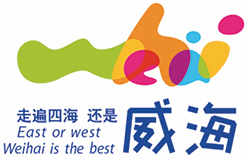Foreigners still largely excluded from China’s mobile payments services
December 3, 2019 Category ![]() China News Round-up, Weekly
China News Round-up, Weekly
Online payment apps Alipay and WeChat Pay have largely driven cash out of the wallets of Chinese consumers. To buy a coffee, use a Mobike, pay a taxi fare, or have dinner delivered to your doorstep, only requires the use of a QR code on your smartphone. But although the payments apps have partly opened their services to foreigners, some functions are still not available to them, the South China Morning Post reports. China has transformed into an almost cashless society at an exceptionally fast pace. According to the People’s Bank of China (PBOC), the volume of domestic mobile payment transactions reached CNY277.4 trillion in 2018, up more than 28 times compared with five years earlier. WeChat Pay and Alipay dominate more than 90% of the mobile payments market in China, but to use them, a domestic bank account and phone number were required.
Recently, Alipay launched an international version of its mobile payments platform for visitors to China. Named “Tour Pass”, the app can be used by foreigners for up to 90 days. It requires a foreign mobile phone number and bank card, which can be used to top up your account with a maximum of CNY2,000 at a time. But many of the mini-apps do not work, making the service largely useless. WeChat too has announced it will now support international credit cards, allowing access to dozens of services, including e-commerce. But trying to set up an account mostly generates a “busy service” notification.
A South China Morning Post reporter explained how frustrating it can be as a foreigner to slowly count cash as locals wait to pay with a quick scan, and face the fact that cashiers are unable to return small change. The newspaper concluded that foreigners are still not fully integrated in China’s mobile payments universe.
- KURT VANDEPUTTE (UMICORE) APPOINTED CHAIRMAN OF THE BOARD OF THE FLANDERS-CHINA CHAMBER OF COMMERCE (FCCC)
- Webinar: “Knowing Your Chinese Partner” – May 26, 2021, 10 am – 12 am
- EMA starts rolling review of CoronaVac, WHO approves Sinopharm vaccine for emergency use
- The Global Times warns not to politicize the Comprehensive Agreement on Investment (CAI)
- Hainan to become biggest duty-free market in the world




























